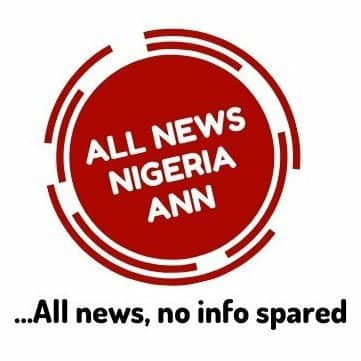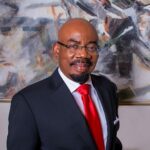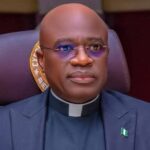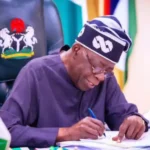“A STATE confers a greater benefit upon its private citizens when as a whole commonwealth it is successful, than when it prospers as regards the individual but fails as a community.
For even though a man flourishes in his own private affairs, yet if his country goes to ruin, he perishes with her all the same; but if he is in evil fortune and his country in good fortune, he is far more likely to come through safely.” – Thucydides
Switzerland is a multi-lingual, multi-ethnic and multi-religious political community. Yet this nation has become a model in terms of a state meeting the aspirations of her citizens. According to the 2020 United Nations Development Programme (UNDP) report, the Swiss have the second highest Human Development Index (HDI) rank in the world. It’s second best in the globe in terms of life expectancy, Gross National Income per capita, education and standard of living in general.
Nigeria is also a multi-lingual, multi-ethnic and multi-religious political community. She is bounded in the north by Republic of Niger, in the west by Republic of Benin and in the east by Cameroon. Its contemporaries at Independence were Brazil, Indonesia, India, Malaysia, Ghana, etc. The 2020 HDI report ranks Nigeria as number 161 out of 189 countries! The Republic of Niger is last on the list – 189 out of 189 countries! Republic of Benin is ranked 158 out of 189. Cameroon ranks 153 out of 189. Brazil is number 84 out of 189 countries. India is number 131, Malaysia is ranked 62, Ghana ranks 138 out of 189 countries. War-torn Libya ranks 105 while Indonesia occupies 107th position out of 189 countries.
Although the incursion of the military into governance reset Nigeria anti- clockwise, the degeneration was faster than imagined. Indeed, the Nigerian Naira was stronger than the British Pounds Sterling up to the end of the 70s. I often remember an opinion by a renowned economist and newspaper columnist, Mr Henry Boyo (now of blessed memory), who also hailed from Delta State. He had arrived from the United Kingdom in 1979 and wanted to pay a commercial taxi operator in Pounds. The driver flatly rejected, preferring to be paid in Naira! The strong economic foundation laid by our founding founders began a plunge from the period of military take-over in January 15, 1966, notwithstanding the oil money that came later, which was largely mismanaged.
And speaking of Delta State, it’s a microcosm of Nigeria. Given its potential, it should have been one of the cantons in Switzerland in terms of economic prosperity or a mini-Switzerland in Nigeria. However, it has also suffered the same affliction like Nigeria. It has been infested with the country’s disease – politically, socially and economically. One was pleasurably amused when the governor of Rivers State, Mr Ezenwo Nyesom Wike, called out his APC brother governors to show what they had done in terms of infrastructural development.
One would have expected his charity to begin from the South-South, especially the neighbouring Delta State that is also an oil-producing state but has nothing to show for its rare status. Over the years, where are the infrastructural development projects that Delta State could point to in spite of its rich resources? Our people deserve far better than what they have got from our political leaders. This is a challenge to the leaders and the youth of Delta State.
There should be a paradigm shift. There must be an end to a zero-sum politics.
Delta could become an oasis of development, even if other states refuse to move with times. Delta should be a model of good governance, accountability and excellent performance in all indices of human development. It is never late for Delta to show the way for Nigeria.
The hot-headed indigenization and nationalization of private industries by successive military governments signalled the decimation or premature deaths of those companies, resulting in loss of millions of direct and indirect jobs.
Even those established during the heyday of the army rule did not survive the depredations of the subsequent military regimes, as one coup succeeded another. The public corporations too collapsed under the mismanagement of military regimes. Indeed, things became so bad for the country that national aircraft and ships were seized in foreign countries on account of unpaid debts!
No government could match the military regimes and subsequent civilian governments in the art of corruption. The civil governments accused of corruption by coup-makers in the First Republic could actually pass for saints.
Military rule scaled Mid-Western Region (now Edo and Delta States) on the path of an accelerated development.
After winding constitutional conferences in Ibadan (1950), London (1953) and Lagos (1954), the founding fathers of Nigeria agreed to live together under a federal arrangement. This led to an accelerated development in the four regions of the North, West, Mid-West and East. The military, with its centralized command structure, destroyed the federal structure, replacing it with a unitary system. Our country should return to full political and fiscal federalism.
The rule of law must be the cornerstone of Nigeria. Nigeria shares the same colonial experience with Ghana. The two can draw parallels from political vicissitudes and military misadventures in governance.
But today, Ghana is a toast of West Africa. Ghanaians enjoy constant power supply. With regular electricity, small scale businesses – the drivers of the economy – flourish. It’s a matter of regret that medium and large-scale businesses are relocating from Nigeria to Ghana due to the unfriendly commercial environment in the former. The cost of doing business in Nigeria is appallingly prohibitive.
In spite of being a plural society, Switzerland has demonstrated the triumph of the human spirit above the shards of ethnicity, corruption, nepotism, cryonism, religious bigotry, impunity that have held Nigeria down for decades. Looking back now, perhaps the members of the 1986 Political Bureau that suggested rotational presidency along the Swiss model for Nigeria had seen ahead of other members of the Dr S.J.S Cookey-led Political Bureau that rejected the idea.
Switzerland has shown the world the possibility of mutual benefits that could accrue to a people who at one time were independent of one another politically and who today are widely divided by language and religion just as Nigeria.
Switzerland remains an enviable nation (‘nation’ advisedly used), a paragon of representative democracy and direct democracy.
Writes Dubs about the Swiss, “Survey the countries of the world, you may find elsewhere greater political achievements, but assuredly in no country will you meet so many good citizens of independent opinions and sound practical judgement; nowhere so great a number of public men who succeed in fulfilling their functions in minor spheres with dignity and skill; nowhere so large a proportion of persons who, outside their daily round, interest themselves so keenly in the welfare and in the difficulties of their fellow citizens.”
Delta holds a promise to become a model state in Nigeria. She has rich human and material resources. But prosperity can only be delivered to her citizens through good governance. Therefore, this is a clarion call to Deltans, to the men
of goodwill, to rise to the demands of our time. We demand more than tokenism. Delta should lead the way while others should follow. The state should invest massively in infrastructure, education, agriculture, health, etc. and provide an enabling environment for businesses to thrive. Nigeria is currently at a crossroads. Perhaps it’s time to look in the direction of Switzerland so as to retrieve our country from the dangerous path it has inexorably plunged herself through parochial interests. Now is the time to demand full federalism.
Sheyi Money, a Social Enterprise Development Consultant, writes from Ughelli, Delta State














Leave a comment